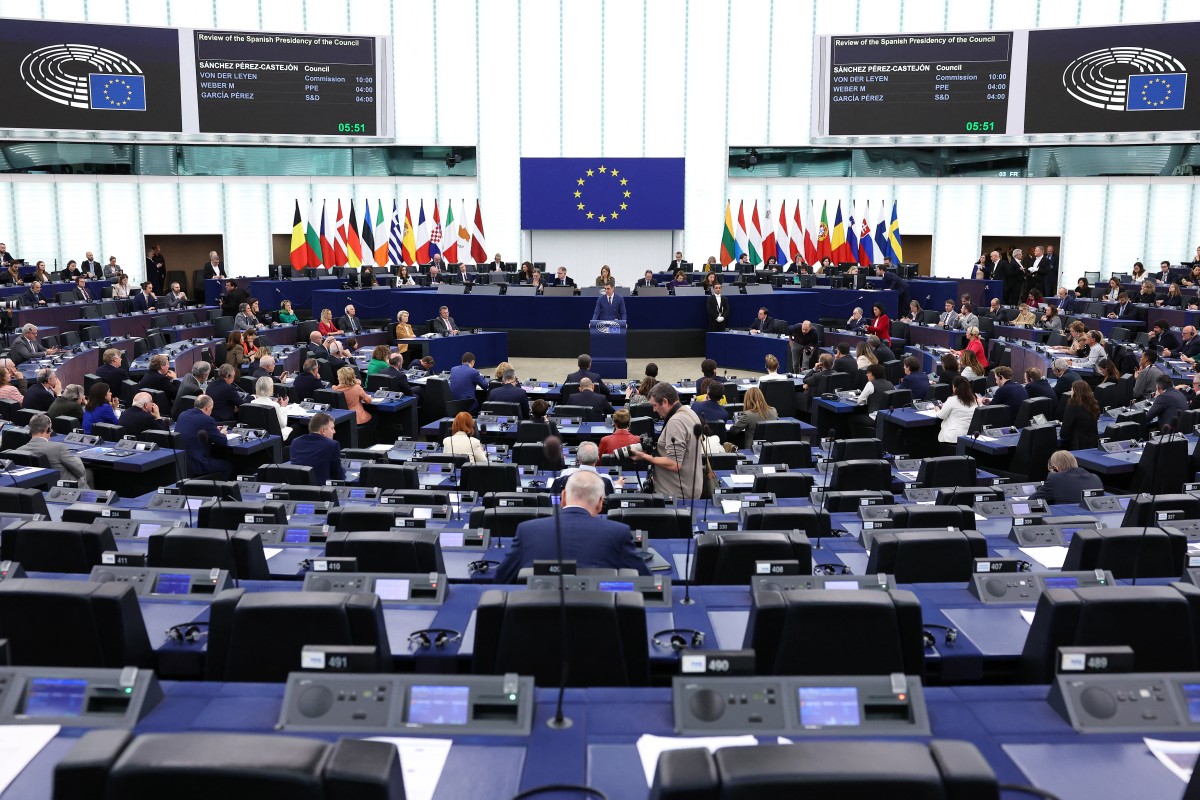Brussels, Belgium – The European Union’s 27 member states on Friday approved landmark rules on reining in artificial intelligence, passing a key last hurdle after tough negotiations to the very end.
Brussels first proposed an AI law in 2021 but spent most of last year racing to greenlight the draft text after chatbot ChatGPT exploded onto the scene.
EU states and lawmakers had agreed on a set of draft rules back in December, billed as the world’s first comprehensive laws to regulate AI, and their approval after that should have been a formality.
But some countries, including France and Germany, flagged concerns that raised fears the AI law would fail in the final stretch — leading to a new round of talks on its contents.
EU ambassadors finally signed off on the text during a meeting Friday in Brussels, after French and German concerns were assuaged.
“We are very happy to announce that … ambassadors just unanimously confirmed the final compromise text found on the proposal on harmonized rules on artificial intelligence,” Belgium, which holds the EU’s rotating presidency, said.
The EU’s top tech enforcer, Thierry Breton, hailed the “historical, world-first, pioneering” rules.
“The AI Act unleashed a lot of passion … and rightly so! Today member states endorsed the political agreement reached in December — recognizing the perfect balance found by the negotiators between innovation and safety,” he said.
Paris had been particularly keen for the law to protect AI start-ups in a bid to ensure the rules do not prohibit future “European AI champions”.
ChatGPT has demonstrated AI’s dizzying advances and showed that the technology — generative AI — poses many threats but could also unleash new opportunities.
The easily-accessible chatbot from US-based OpenAI could create eloquent essays and passionate poetry within seconds, as well as pass medical and legal exams.
Generative AI software, which also includes Google’s chatbot Bard, can quickly produce text, images and audio from simple commands in everyday language.
The European Parliament is due to vote on the text in March or April, before it becomes law. It should then be formally approved in May.
The law will not enter into force immediately, however. Some rules will apply within six months while other elements of the law will kick in two years later.
CCIA, one of the main tech lobbying groups, said Friday’s approval was an “important step” for the text’s formal adoption but remained cautious.
“Despite efforts to improve the final text, after ‘victory’ was prematurely declared back in December, many of the new AI rules remain unclear and could slow down the development and roll-out of innovative AI applications in Europe,” CCIA Europe’s senior policy manager, Boniface de Champris, said.








